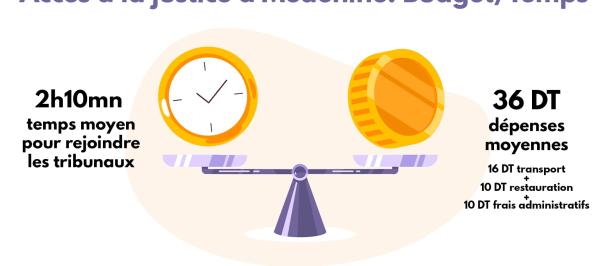The opening panel of Nelson Mandela International Day – Tunis, 18/07/20
Every year, on the 18th of July, we celebrate Nelson Mandela International Day, to remember his life and devotion to the service of humanity. This event commemorated his fight against injustice and poor living conditions of detainees.
A national Nelson Mandela Prize was also announced, to recognize the work of those who, just like Mandela, are dedicating their lives to the prevention of torture and the promotion of better detention and reinsertion conditions for detainees
Mandela’s story touches us all…
This year, the UNDP’s « Access to rights » team supported the National Authority for the Prevention of Torture (INPT) in Tunisia in organizing the Mandela Day at the City of Culture in Tunis.
This celebration was attended by young academics and members of the Tunisian civil society who learned about the heritage and the work of “Madiba”.
His story is not only an inspiration for the young generations and human rights activists, but also for UNDP’s teams in Tunisia in their projects for justice and peace.
Who is “Madiba” for Tunisians?
Nelson Mandela embodies the core values of the UN. 100 years after he was born, his bravery and compassion continue to inspire the entire world, and particularly our project’s team.
In Tunisia, his story is echoed by the work of thousands of activists fighting for democracy, human dignity and equality, and who dedicated their whole lives to the emancipation of Tunisians.
By honouring him today, we are also paying tribute to all of those who share the fight and the values to which he dedicated his life. By celebrating him, we are also committing ourselves to pursuing our efforts towards a free and a prosperous Tunisia.
Mandela, an inspiration to young Tunisians
Inspired by his work, many young scholars and civilians expressed their support to the work of the INPT and the General Committee of Prisoners and Re-education (GCPR) to improve the living conditions inside Tunisian prisons, including through the provision of social support and cultural activities to detainees. Many researchers also requested the support of the INPT in conducting research on torture prevention. The attendees also questioned the authorities present on the resources available to promote peace and guarantee the sustainable development of present and future generations.
Young scholars and members of the civil society during the debate – 18/07/2020
Leave no one behind, including detainees
During his 27 years in prison, Mandela was a symbol of courage. He showed resilience in his personal and universal fight for justice and liberty.
After this experience, Mandela fought relentlessly for the promotion and protection of prisoners’ rights, with a clear objective: to ensure that deprivation of liberty does not pave the way for further deprivation of human rights. He wanted to make sure that everyone, including prisoners, had equal rights, and that imprisonment could be viewed as a form of rehabilitation and re-education rather than as a sanction or punishment.
“A nation should not be judged by how it treats its highest citizens, but its lowest ones” Nelson Mandela
At the time, Mandela was following the principles cited in the preamble and the different articles of the Universal Declaration of Human Rights. Without even knowing it, he was paving the way for the UN to adopt rules for treating inmates, known today as the “Nelson Mandela Rules”, but also for the Sustainable Development Objectives and 2030 Agenda. Indeed , a central principle of the 2030 Sustainable Development Agenda is to “Leave No One Behind”.
Ensure respect for the Nelson Mandela Rules
Governments are called to follow the Nelson Mandela Rules in order to make sure that detention conditions are in line with international standards.
In Tunisia, the UN System assists the different institutions involved in ensuring respect of the Nelson Mandela rules.
Our program “Access to Rights”, implemented in partnership with the Office of the United Nations High Commissioner for Human Rights (OHCHR) supports the GCPR but also the INPT in complying with international standards. This program showed its importance during the Covid-19 mandatory lockdown, which not only created new spaces of deprivation of liberty, but also new circumstances leading up to incarceration.
Nelson Mandela Rules as a foundation of the “Prisoner’s Guide in Tunisia”
With the help of the European Union and the Council of Europe, our project reinforced the work of the INPT and the GCPR with the publication of a “Prisoner’s Guide in Tunisia”, as well as the “Handbook on penitentiary law in Tunisia”, which will be published soon.
The “Prisoner’s Guide” is intended for prisoners and prison officials, but also for the families of those incarcerated, whereas the Handbook is intended for lawyers, judges, members of parliament, NGOs, journalists, and academics working on this topic. Both manuals are based on 3 normative references: the Tunisian legislation, the European Prison Rules, and the Nelson Mandela Rules.
These two documents are particularly important because they have been drafted in collaboration between both the monitored institution – the Ministry of Justice and particularly the GCPR – and the monitoring institution - the INPT. The Handbook and the Guide both follow the path of an inmate, from the first to the last day in prison. All steps of his journey are described, from incarceration to life inside the prison, to making sure their rights are preserved, and finally getting ready to go out and be reintegrated into society. This journey clearly lays out the rule of law and its compliance with international norms, including the European Prison Rules and the Nelson Mandela Rules.
Distribution of the “Prisoner’s Guide in Tunisia” to detainees at the prison of Mornaguia – 10/12/19
As a part of Human Rights Day, the Guide was officially presented on December 10th 2019, and was distributed to both prisoners and prison staff, who had the opportunity to receive detailed explanations by the members of the INPT and GCPR. The guide was given out to all the detainees in the civilian prisons of Mournaguia, Manouba, Borj El Amri and Mornag.
By presenting both this Guide and the soon-to-be-published Handbook to inmates and prison staff as well as to judges, lawyers and civil society organizations, we are contributing to the achievement of our project’s objectives, namely, and making sure that prisoners are aware of their rights.
National Nelson Mandela Prize
The INPT announced a National Nelson Mandela Prize to encourage initiatives around the prevention of torture, the improvement of detention conditions but also the reintegration of prisoners into society. These include introducing social and cultural activities inside the prisons, promoting their social and professional reintegration, and preventing recidivism and violent extremism.
This Prize will be awarded annually to recognize the work of Tunisian civil society organisations, including youth-led organisations, which are working to prevent torture and promote better living conditions and reinsertion conditions for Tunisian detainees.

 Locations
Locations








